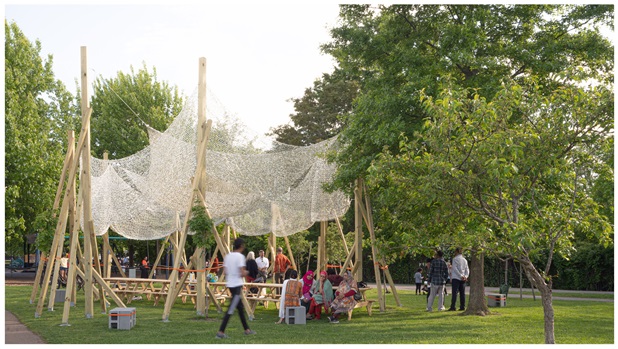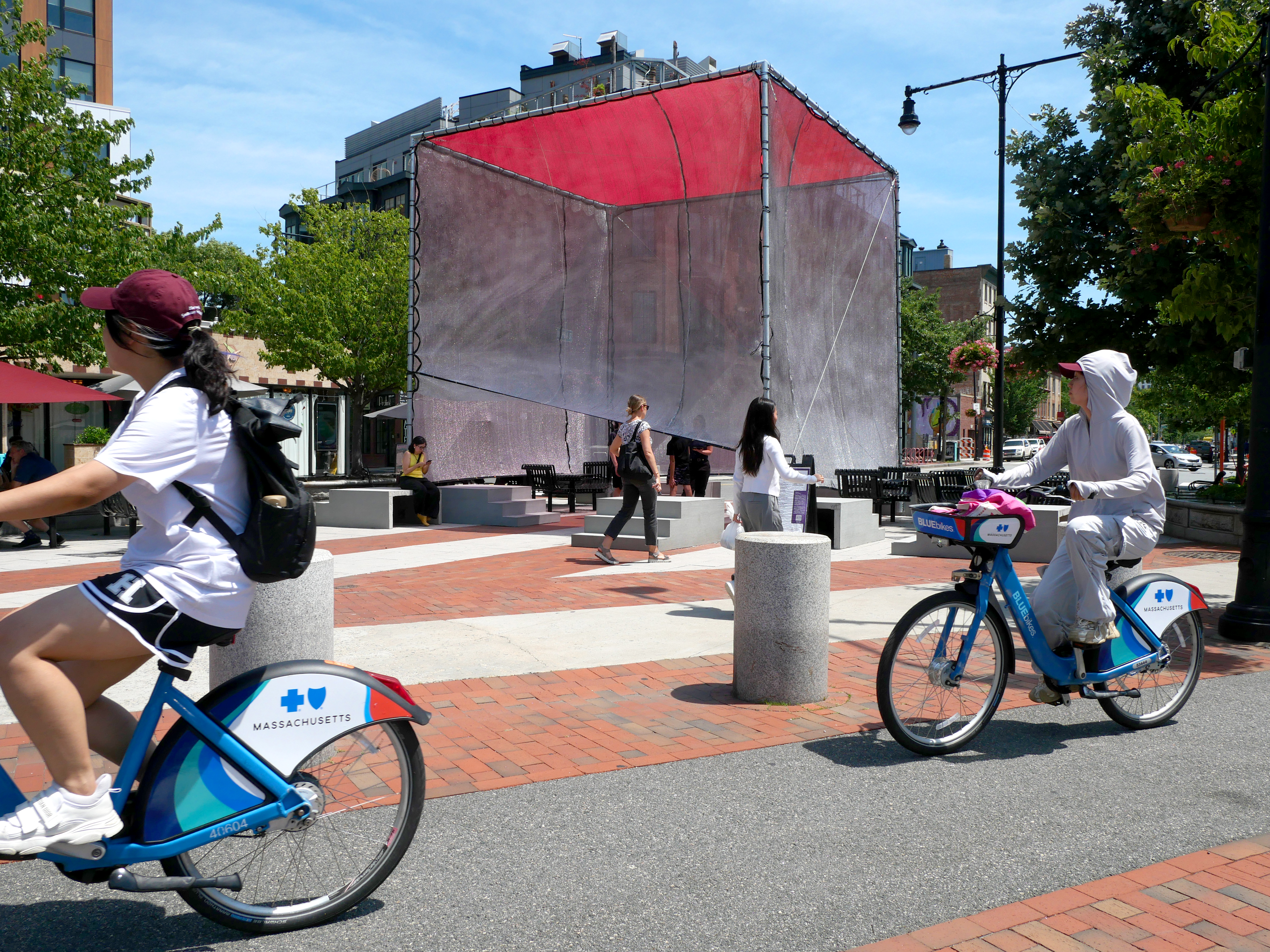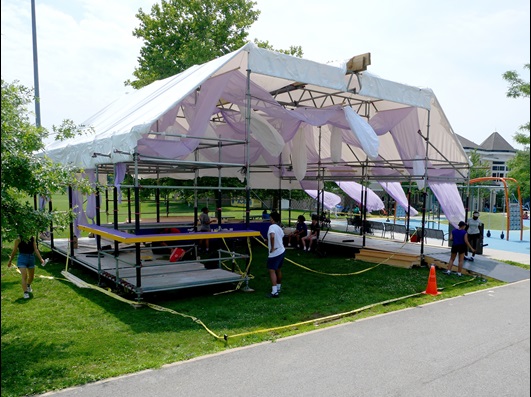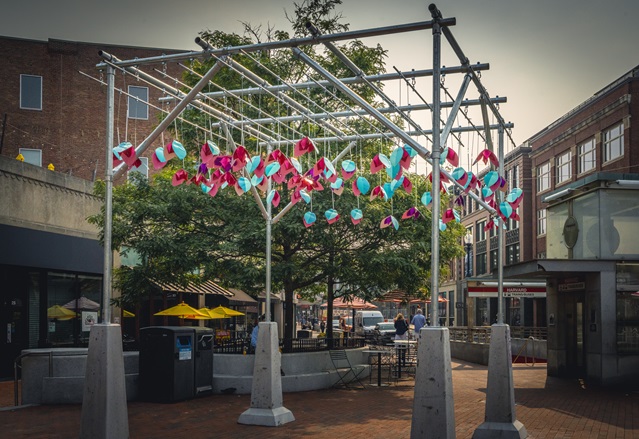Shade is Social Justice is funded by an Accelerating Climate Resiliency grant from the Metropolitan Area Planning Council (MAPC). It is one of the innovative ways the City of Cambridge is building climate resiliency and preparedness—and using the power of art and design to shape perception, strengthen communities, and find solutions. Each approved project will receive a budget of approximately $27,000.
Locations:
2025:
- Jill Brown-Rhone Park, also known as Lafayette Square, in Central Square
- Brattle Square
- Hoyt Field
2024:
- Jill Brown-Rhone Park, also known as Lafayette Square, in Central Square, 2024
- Donnelly Field, near Frisoli Youth Center and King Open/Cambridge Street Upper School complex, 2024
- Russell Field and playground, off Rindge Avenue, 2024

"Growing Shade” by Alejandro Saldarriaga and Northeastern University
located near the Russell Field playground, between Rindge Avenue, Clifton Street and Harvey Street, North Cambridge.

“Sun Block” by Gabriel Cira and Matthew Okazaki
in Cambridge’s Jill Brown-Rhone Park in Central Square

“SHADE” was designed by a local youth committee (Cheryl Rateau, Eli Goncalves, Nico Chandler, Samadhi Simmons, Matt Keane, and Amara Henry-Guity)
with support from Buildingways, Friday Night Hype, Citizens of the World, Olin College of Engineering, Jennifer Lee, Cambridge Public Health Department and Pneuhaus.
"SHADE'" is located in Donnelly Fields.

"Heat BLOOMS” by Art for Public Good. (Matt Conti photo). Located in Brattle Square, Harvard Square.
Shade is Social Justice provides:
- Imaginative solutions: Artists are uniquely skilled at cross-disciplinary responses to complex challenges that also engage a multi-generational public. Shade is Social Justice is an opportunity for artists and designers to explore imaginative solutions to the problem of heat islands throughout the city, particularly in areas with the highest risks. Because we know that social connection increases preparedness and resiliency, we are looking for solutions that combine reasons for gathering with cooling.
- Material Science and Engineering: Shade is Social Justice is also an opportunity to investigate material science and engineering to identify ways in which sustainable material choices and methods of fabrication can best serve the mission of the project.
- More Than Shade: Shade structures are not effective unless they are used. Shade is Social Justice is an opportunity for artists and designers to consider how to incorporate interactive attractions in a shade structure, such as playful elements, data collection, lighting, educational messaging, or misting. Seating will be an important part of the design. Programming will further the impact and promotion of the project.
- Social Justice and Replicability: Climate change is complicated to communicate, heat is invisible, and heat risk is unequally distributed across the city. The problems and the solutions around climate change go beyond any one municipality. Shade is Social Justice aims to offer replicable designs for shade structures that could be used in multiple neighborhoods and by other municipalities.







